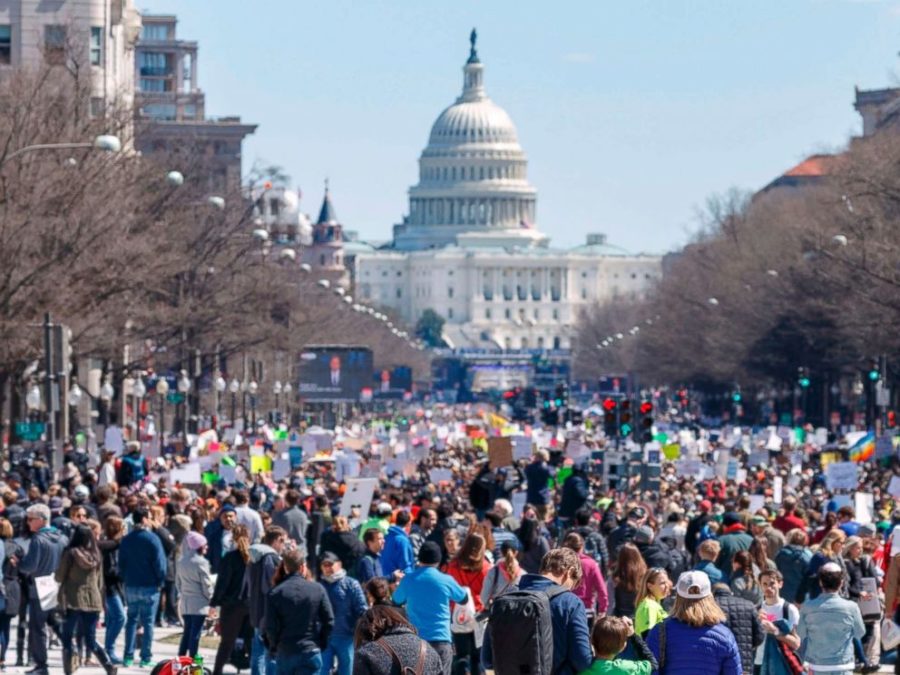More Gun Control Action Must Be Taken
The sudden shock of two recent mass shootings — one in Atlanta, Georgia and the other in Boulder, Colorado — has renewed the country’s attention towards executive action. Notably, President Joe Biden proposed an ambitious gun-control agenda in Congress just last week, recommending “common-sense steps” to address gun possession. The very occurence of these tragedies, nevertheless, illustrates how far we must go in addressing the deep-rooted issues affecting our country. While President Biden’s pledge to employ restrictive gun policies is a strong step to combat gun ownership, there still needs to be more done to build a non-violent environment for all.
“We should not have to wait for another mass shooting for us to start getting gun reform policies passed,” remarks Miggy Antonio (I). “Time and time again, we have seen throughout the last 10 years that we do need new regulation policies on gun control and yet, we never learn.” What is clear is that the longer we let recycled ideas, such as restricting large firearms and implementing background checks, remain the sole way we address and dismiss this violence, the further we get from addressing the root of the matter.
The longer we allow this gun violence to continue, the more prevalent its impacts in communities across the United States become. The recent racially motivated acts of domestic terror and public shootings have shown how this constant barrage of gun violence embeds itself into American society, causing long-term trauma for many across the country.
Assistant Head of School Ms. Danielle Murray adds that, “Even if students were not impacted by this occurrence [of gun violence], any new loss or hurt in our school brings up past hurts and losses as well. It is also important to give our community the space to talk about their fears and frustrations, and to name these events as connected by gun violence.”
Not only does gun violence shape where we choose to live, how parents discuss the possibility of gun violence to their children, and how students view their schools, but it also affects different demographics in different ways, often intersecting with race and class and manifesting as a symptom of deep-rooted inequalities in America. That is why it is important to interrupt systems of violence and ultimately build power for communities most impacted by gun violence.
Research shows that tackling specific factors such as limited educational and job opportunities, unaffordable housing, barriers to health care, and job and food insecurity lower homicides and suicides over time. This form of intervention proved its success in our very own city, where the “Boston Miracle” — an attempt to forestall gun violence in US cities through investing social resources back into communities — saw youth homicide rates fall 63 percent. To truly address the root causes of violence, we must invest in economic and social infrastructure that brings greater stability to the communities affected by high crime. We must continue to ensure financial support for violence intervention programs that are both community-based and led.
Moreover, we need to recognize concerns regarding the increased violence against people of color, specifically in the forms of hate crimes. Assistant Head of School Mr. Steven Chen comments, “When there is an act of violence against people of color in the United States, there is always a fear that the violent acts involve guns — something that citizens in other countries do not have to worry about.” In the context of America’s racial polarization, hate crimes will become more prevalent — and more violent — unless something is done to address it.
Crimes against people of color and racial tensions have surged amidst this time, which is often fueled by the media’s insensitive rhetoric and hateful speech addressing minority groups. It is imperative that across the nation, and especially within our own school community, we acknowledge the role our speech can have in inciting violence.
Although it is important to tackle the effects of gun violence, we must also make sure to eradicate the inequalities that predicate this violence in our country — only then will true progress be made.







